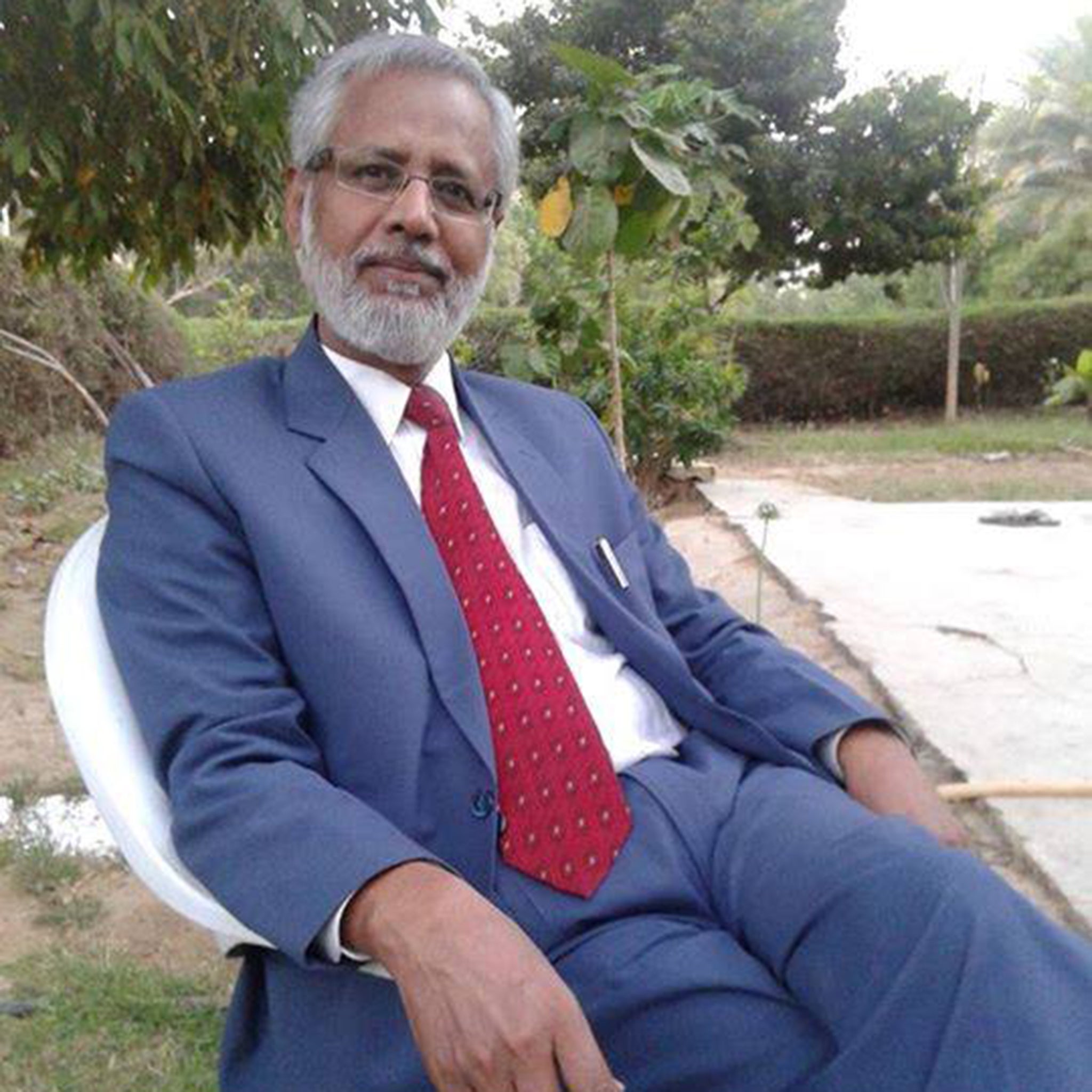Dr Muhammad Shakeel Auj: Islamic scholar murdered in Pakistan due to his liberal views
Auj’s death makes it clear that now even the most mainstream Sunni voices will not be tolerated

While he largely adhered to Muslim orthodoxy, Shakil Auj, a distinguished scholar of Islamic studies, was criticised by many in Pakistan for some relatively liberal views.
It appears as though he may have paid for those views with his life. Auj was on his way to a reception at the Iranian Cultural Centre in Karachi when assassins struck. Two as yet unidentified men pulled up on a motorcycle beside the vehicle that was carrying Auj and his friends. Two bullets struck the professor, killing him instantly, while a third wounded one of his former doctoral students.
The spindly 54-year-old Dean of Islamic Studies at Karachi University had little in common with the many who have been slain in the city in recent years. He had no political enthusiasms, was not a prominent member of any sect or ethnic group and had no business entanglements that might attract hostile attention. He was, by all accounts, a kind man with a famous sense of humour entirely devoted to his students and his lifelong study of Islam. “He was very witty, open and had his only focus on the Holy Quran for Islamic teachings and nothing else,” one of his former students told me.
For much of his life Auj represented mainstream Islamic scholarship in Pakistan. His academic career was spent at Karachi University, where he gained five degrees, including a law degree, and a Masters in journalism. In 2000 he completed his PhD in Islamic Studies with was a comparative study of eight Urdu translations of the Quran. Last month the President of Pakistan, Mamnoon Hussain, gave him the Medal of Imtiaz, a state honour, in recognition of his services to education.
Auj was also the author of 77 research papers and 15 books. One of those books, on the rights of women in Islam, grated with his more hardline and orthodox-minded colleagues. He argued, for example, that Muslim women could marry men of other faiths, and also suggested that Muslim women did not need to remove lipstick or other make-up before praying.
When Auj was made Dean of the Faculty of Islamic Studies, that resentment appears to have deepened. His colleagues began a covert campaign against him that began with bogus allegations of plagiarism and culminated in death threats. Last year he complained to the police and the vice-chancellor of the university that he was being accused of blasphemy.
In Pakistan, the mere suggestion Islam’s prophet has been defamed can be deadly, and the vaguely worded blasphemy laws that find their origins in the Raj have been used to pursue vendettas and persecute religious minorities. Such is the sensitivity around the subject that once an allegation is made, there are no means of defending oneself. Mob pressure leads the police to take the accused into custody, from where they may never emerge, and few judges will acquit an accused blasphemer.
The biggest champions of the law are also those who feel the need to take the law into their own hands. In 2011 the governor of Punjab province, Salmaan Taseer, and the Minorities Minister, Shahbaz Bhatti, were assassinated for speaking out against the treatment of religious minorities who have been imprisoned under the blasphemy laws on little or no evidence.
Auj received menacing text messages last year; one said that his head would be severed from his neck. Four men were arrested, including his predecessor as Dean, but were later released on bail. The Karachi police said that there had been a fatwa issued against Auj.
While he had a reputation as a liberal, Auj maintained many orthodox religious views. In videos he can be seen advocating capital punishment for criminals, especially terrorists. He believed it would prove an effective deterrent, bemoaning the fact that scarcely any terrorists have been prosecuted in Pakistan. “Extremism leads to persecution,” he said in a spirited recent speech, “and as it spreads, it envelops everything around it.”
But he was also a staunch advocate of tolerance. “If you reply to a stone with a brick, then the matter will only escalate,” he warned the audience in one his lectures. He deplored the decline of Pakistan’s Islamic scholars, arguing that they had become too enamoured of power to offer any lessons to society. In his last lecture before his death, Auj lamented that modern Muslims too often refuse to debate and discuss matters. “Today people want to impose their own will at gunpoint,” he said. It was a chillingly accurate presentiment.
Shockingly few Pakistani politicians have spoken up for Auj. It has long been the case that little resistance was offered when fanatics killed religious minorities, not just those of other faiths – principally Hindus, Sikhs and Christians – but also Muslim minority sects including Ahmedis and Shias. Outspoken liberal scholars of Islam, like Javed Ghamdi, left Pakistan long ago. Auj’s death makes it clear that now even the most mainstream Sunni voices will not be tolerated.
Shakil Auj, Islamic scholar: born Karachi 1 January 1960; married (three sons); died Karachi 18 September 2014.
Subscribe to Independent Premium to bookmark this article
Want to bookmark your favourite articles and stories to read or reference later? Start your Independent Premium subscription today.

Join our commenting forum
Join thought-provoking conversations, follow other Independent readers and see their replies